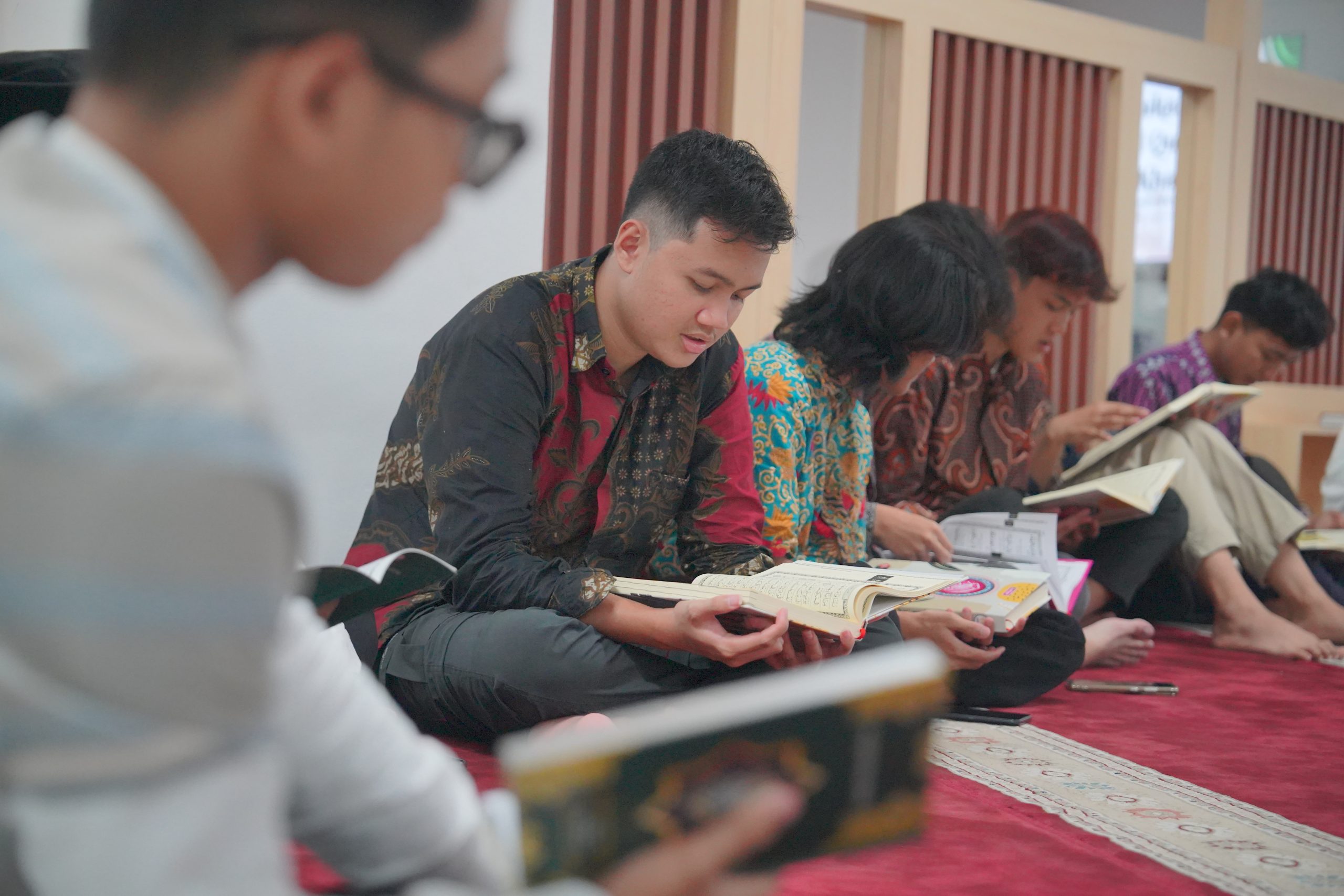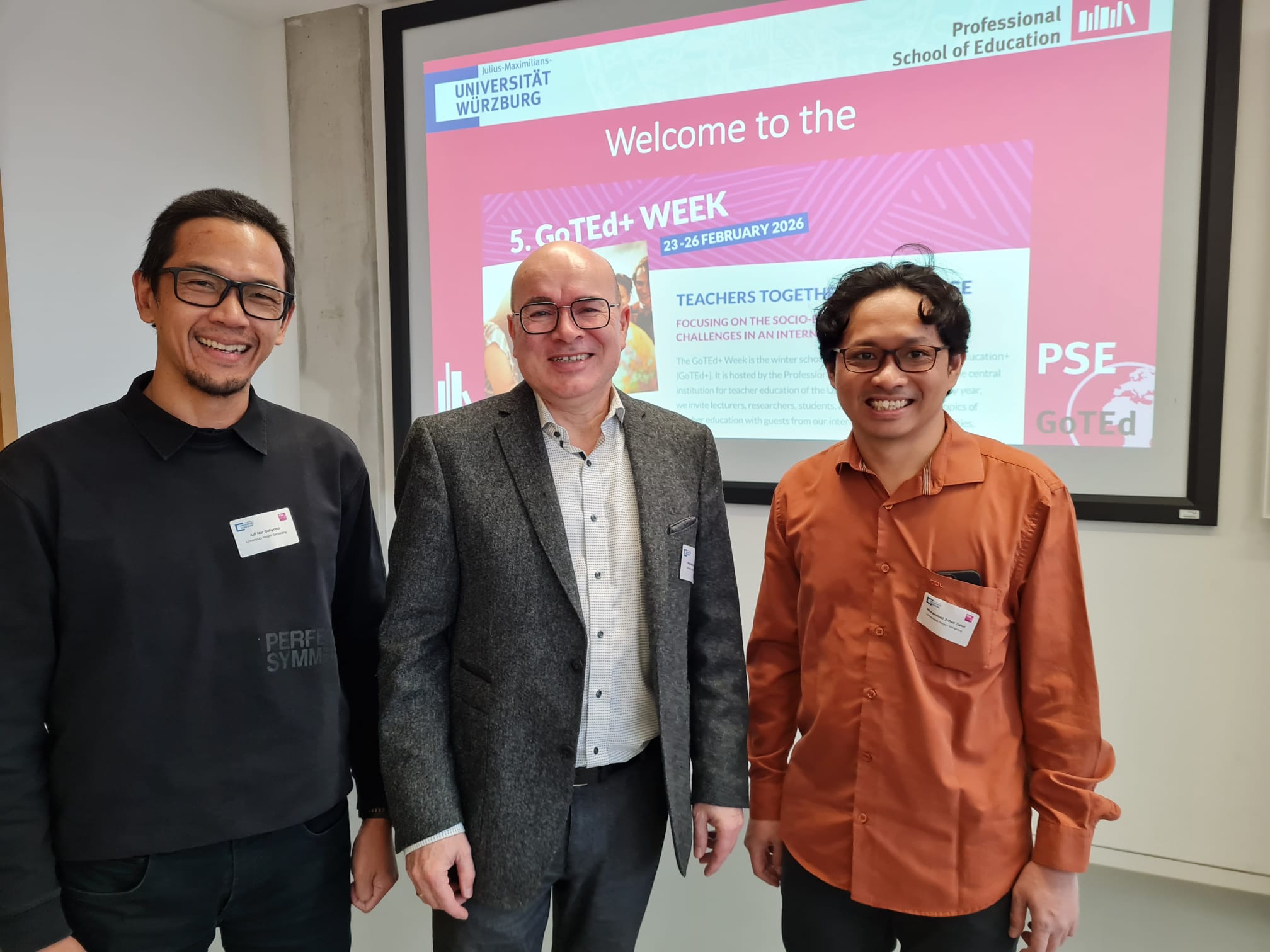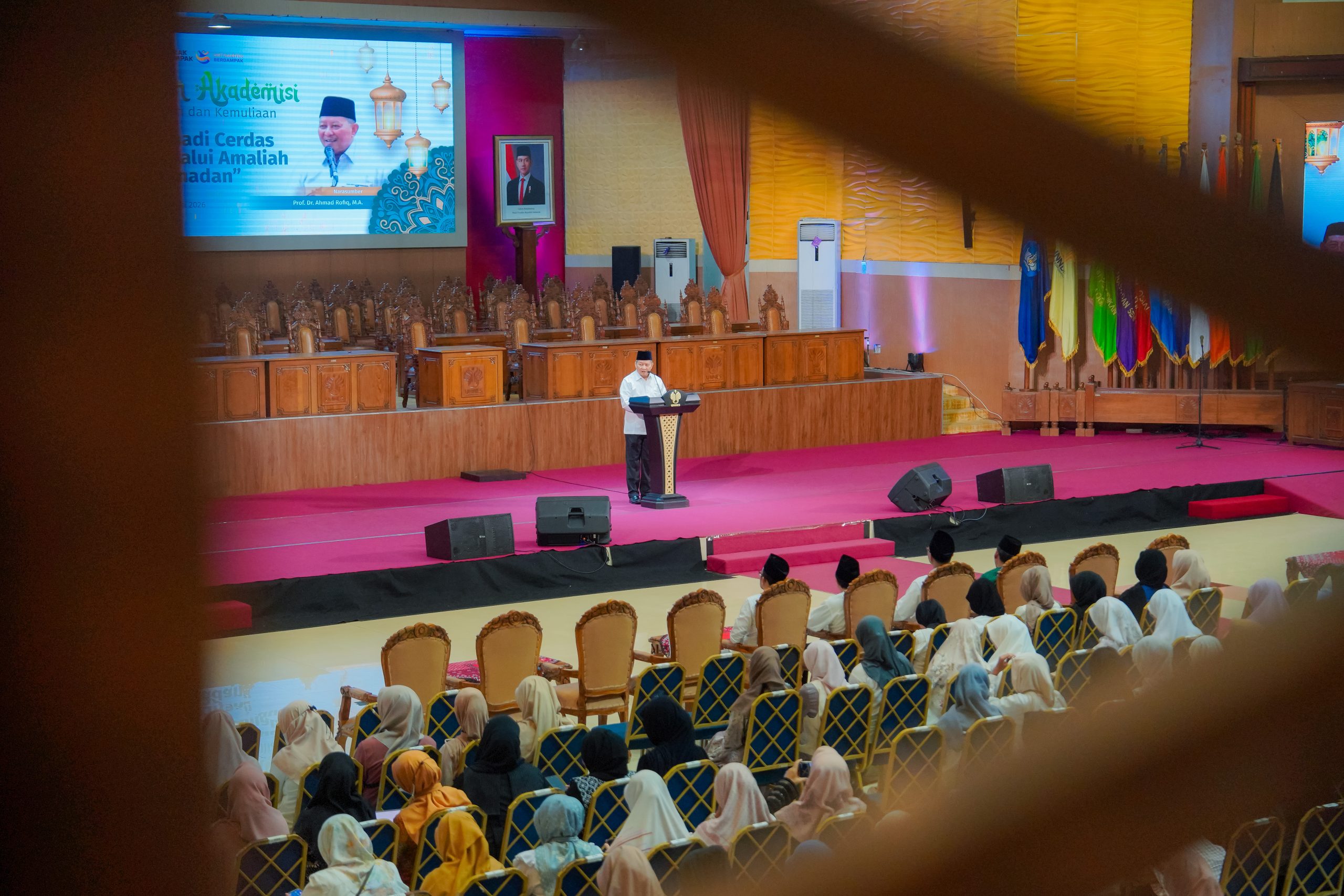Forum Rektor Indonesia (FRI) mengadakan Focus Group Discussion yang bertemakan “Peran Perguruan Tinggi Dalam Pengembangan Karakter Di Era Digital” Universitas Negeri Semarang (UNNES) sebagai tuan rumah, Sabtu (7/12) di Kampus Pascasarjana Jalan Kelud Utara III Semarang.
Prof Dr Fathur Rokhman MHum selaku Rektor UNNES dalam sambutannya menyampaikan selamat datang dan terimakasih kepada para segenap pembicara, tamu undangan, dan seluruh peserta FGD Forum Rektor Indonesia. Kemudian acara dibuka langsung oleh ketua Forum Rektor Indonesia Prof Dr Yos Johan Utama SH MHum yang juga sebagai Rektor Universitas Diponegoro.
Masuk ke sesi diskusi, yang terdiri atas beberapa pembicara yaitu Rektor UNNES Prof Dr Fathur Rokhman MHum, Ketua FRI 2019 Prof Dr Yos Johan Utama SH MHum, Ketua Dewan Kehormatan FRI Prof Dr Rochmat Wahab MPd MA, Anggota Dewan Pertimbangan FRI yang juga sebagai Direktur Politeknik Negeri Ujung Pandang Prof Ir Muhammad Anshar MSi PhD, Ketua Senat UNNES Prof Dr Soesanto MPd, dan Ketua Majelis Rektor UNNES Prof Mungin Eddy Wibowo MPd Kons. Sebagai moderator Wakil Direktur Bidang Akademik Pascasarjana UNNES.
Hasil diskusi ini nantinya akan disampaikan kepada Presiden Republik Indonesia Bapak Joko Widodo sebagai bahan pertimbangan dalam program pengembangan karakter di Indonesia.
Materi pertama disampaikan diawal acara oleh Ketua Dewan Kehormatan FRI Prof Rochmat karena beliau akan menghadiri undangan acara lain dengan judul “Pengembangan Potensi Anak Berbakat Berbasis Karakter Di Era Digital”, dalam paparannya beliau menyampaikan “mengingat tantangan di era digital yang semakin komplek, maka pengembangan potensi anak haruslah berbasis karakter,” kemudian materi kedua disampaikan oleh Prof Yos Johan, beliau mengatakan “hukum seharusnya bukan mengancam agar tidak melanggar, namun hukum harus memastikan siapapun tidak melanggar,”, kemudian materi ketiga disampaikan oleh Prof Soesanto mengenai pengembangan pendidikan vokasi, “pemerintah harus membuat suatu kebijakan dengan mengikitsertakan industry dalam mengembangkan pendidikan vokasi,” ujar Prof Soesanto dalam paparannya. Materi selanjutnya disampaikan oleh Prof Mungin mengenai peran konseling di perguruan tinggi, beliau berharap agar dibuat sebuah pusat konseling di perguruan tinggi untuk mengatasi masalah-masalah mahasiswa yang selama ini belum ada yang mengurusi, dan terakhir paparan dari anggota Dewan Pertimbangan FRI Prof Anshar “semoga dari FGD ini bisa merumuskan suatu langkah konkrit dalam pengembangan karakter di perguruan tinggi,” ujarnya.
FGD juga dihadiri segenap Pimpinan Universitas Negeri Semarang, Wakil Rektor dan jajarannya, Plt Direktur Pascasarjana UNNES, Dekan, Wakil Dekan, Dosen, serta mahasiswa UNNES DAN UNDIP.
Reporter : Student Staff/Bayu Setiaji
Fotografer : Lintang Hakim



